2021 Gender Awards: Five IFAD-supported projects transforming women’s roles in rural communities
IFAD Asset Request Portlet
Asset Publisher
2021 Gender Awards: Five IFAD-supported projects transforming women’s roles in rural communities
02 March 2022For vibrant, prosperous and equitable rural economies – where ecosystems are nurtured and sustained and rural-dwellers are free of poverty and hunger – we need nothing less than structural transformation.
This means ensuring rural women and men have equal opportunities to participate in and benefit from economic activities, equal presence and influence in local institutions and organizations, and an equitable share both in the work itself and in its economic and social benefits.
IFAD aims to help communities around the world achieve this kind of transformative gender impact through our policy on gender equality and the projects we support. Every year, we recognize a project from each of our regions that empowers rural women and girls. Here, we present the winners of our 2021 Gender Awards.
Asia and the Pacific
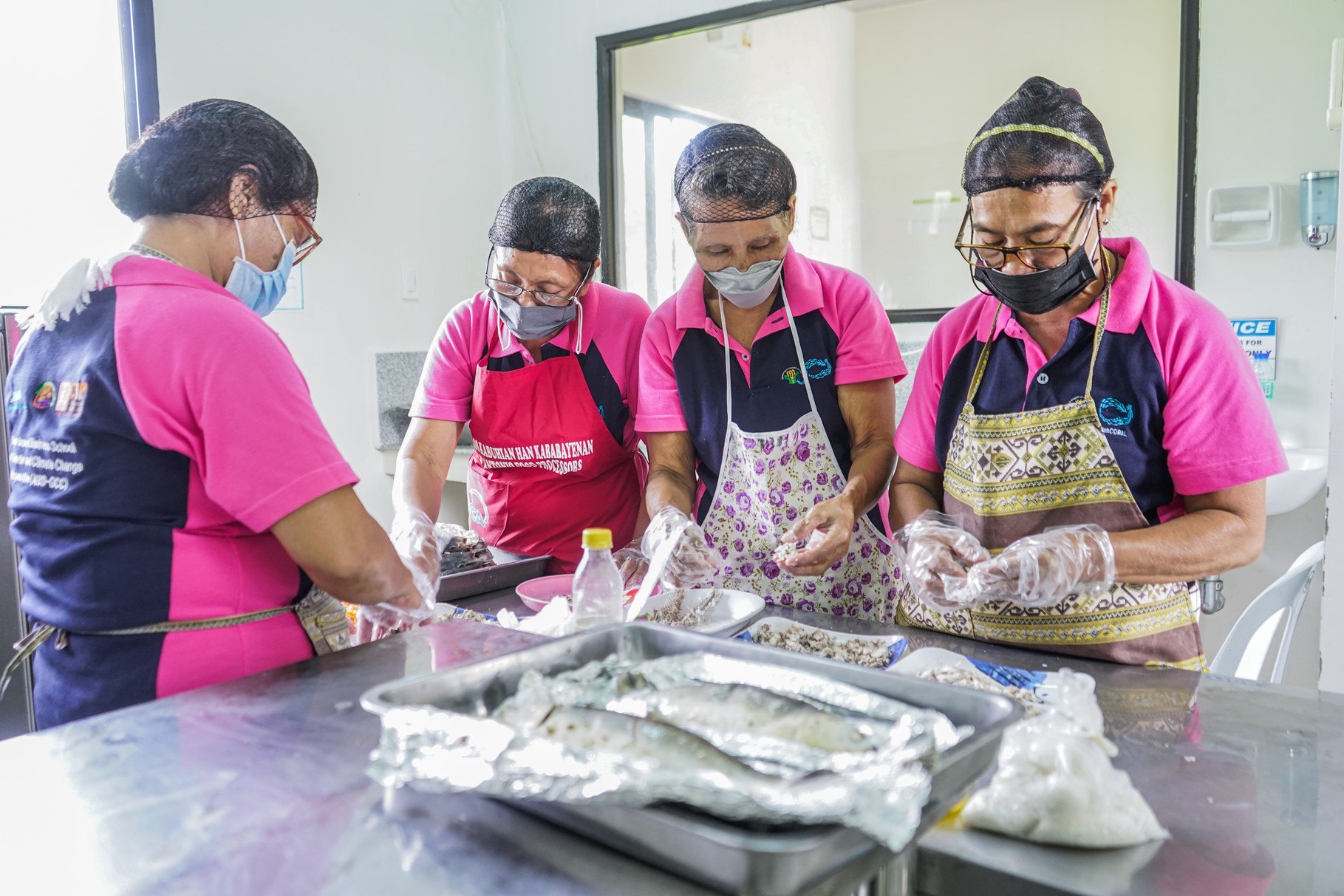
The FishCORAL project expands opportunities for women in the Philippines to start their own businesses in the fisheries sector.
Previously, most of the work in fishing communities was done by men. Today, thanks to the project, the entire community is aware of the benefits when women are involved in economic activities and participate fully in decision-making. In fact, two-thirds of the new livelihood initiatives developed under the project were implemented by women.
“The project has given them a real opportunity to create an impact within their society,” says Sandra Gani, one of the project’s regional coordinators. “This is not just by participating in different activities, but also by providing women a platform to lead and manage an organization. It proves that women have the power to lead.”
East and Southern Africa
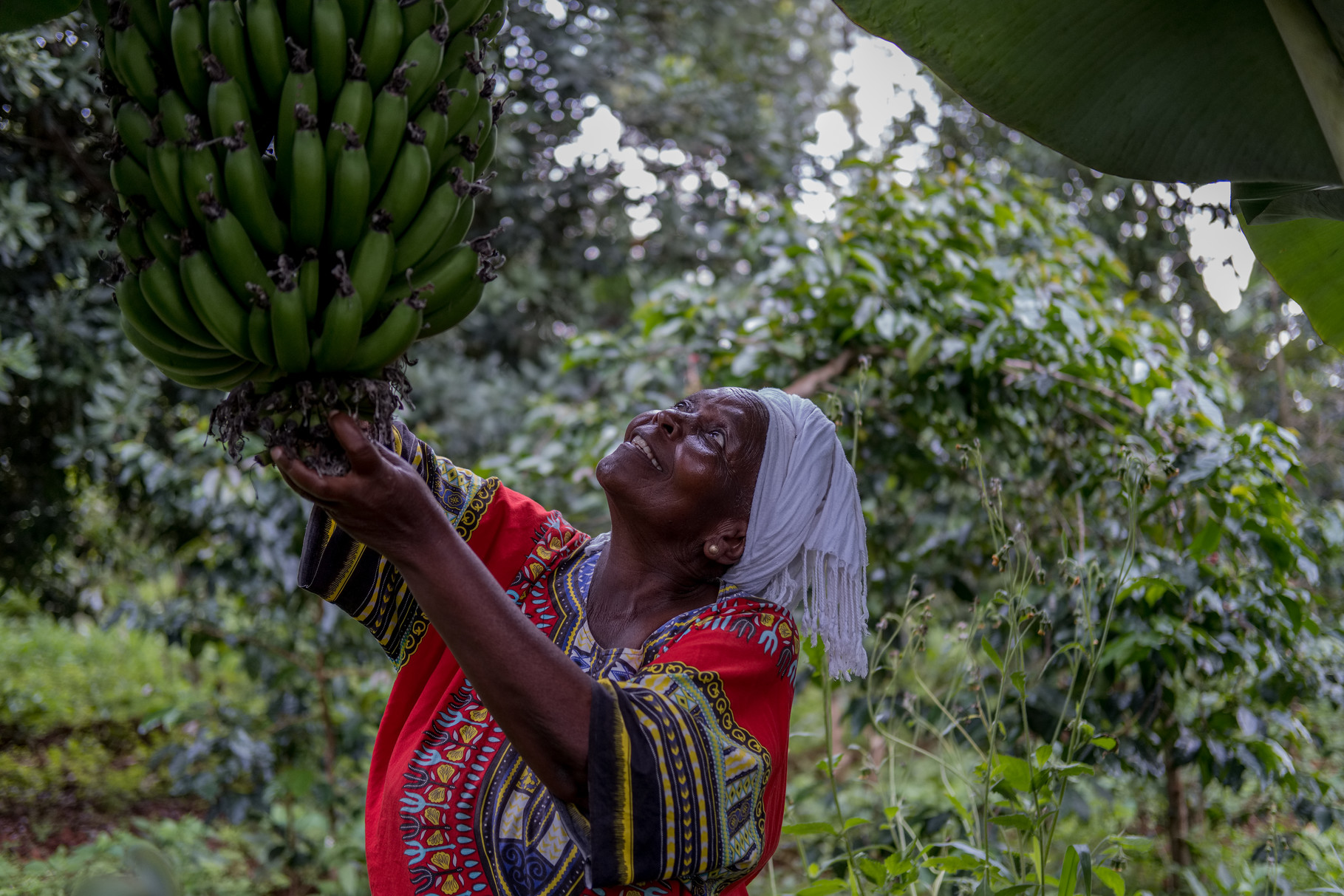
Staff for Kenya’s UTaNRMP project believe that empowering people at the household level is one of the best ways to enhance gender equality.
The project uses the Gender Action Learning System (GALS), a set of activities and dialogues that encourage women and men to reflect together on social norms and how these influence their livelihoods.
People in participating communities say that spouses now routinely make key household decisions together, and resources are shared more equally within families. What’s more, women now hold more than half of all leadership positions in community-funded activities.
”It wasn’t easy for me to embrace GALS,” says Ayub Mukuria, who participated in the project, along with his wife, in Meru County. “But I have come to realize that we’ve achieved great things since we embraced it as a young couple.”
Latin America and the Caribbean
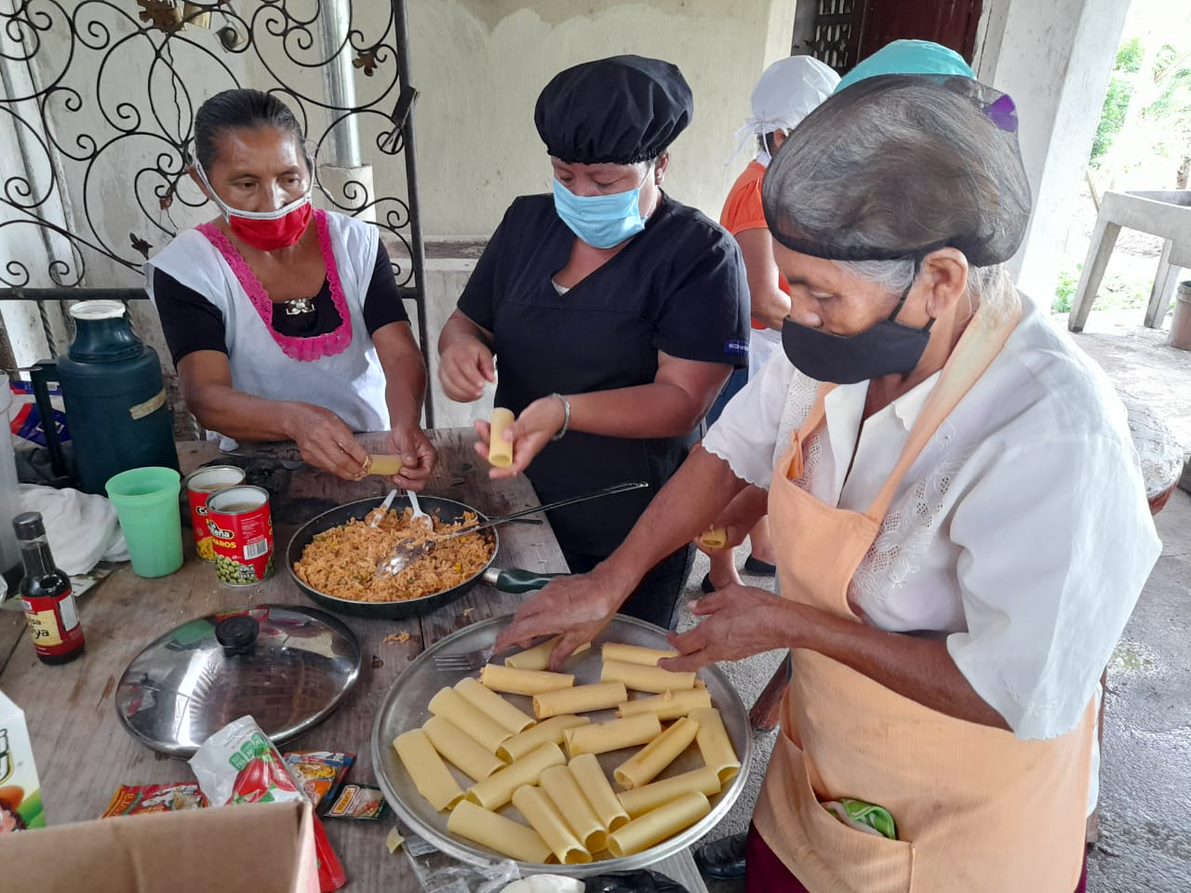
For far too long, the women of Nicaragua’s Dry Corridor had worked long hours for little pay or recognition. Now, the NICAVIDA project is putting women at the centre of its efforts to build the region’s resilience.
NICAVIDA has co-organized numerous workshops and internships where attendees, the majority of whom are women, have learned the skills necessary to develop agricultural businesses and use technology to adapt their farming practices to the effects of climate change. Other trainings have focused on developing agrotourism activities and preventing gender-based violence.
And, through a combination of hosting community fairs and business conferences and establishing local marketing networks, the project has also helped these women entrepreneurs find new ways to promote and advertise their products.
Today, their businesses are thriving. The region’s women now negotiate actively with suppliers and buyers, and their work plays a crucial role in improving their families’ livelihoods and creating sustainable, resilient local economies.
Near East, North Africa, Europe and Central Asia
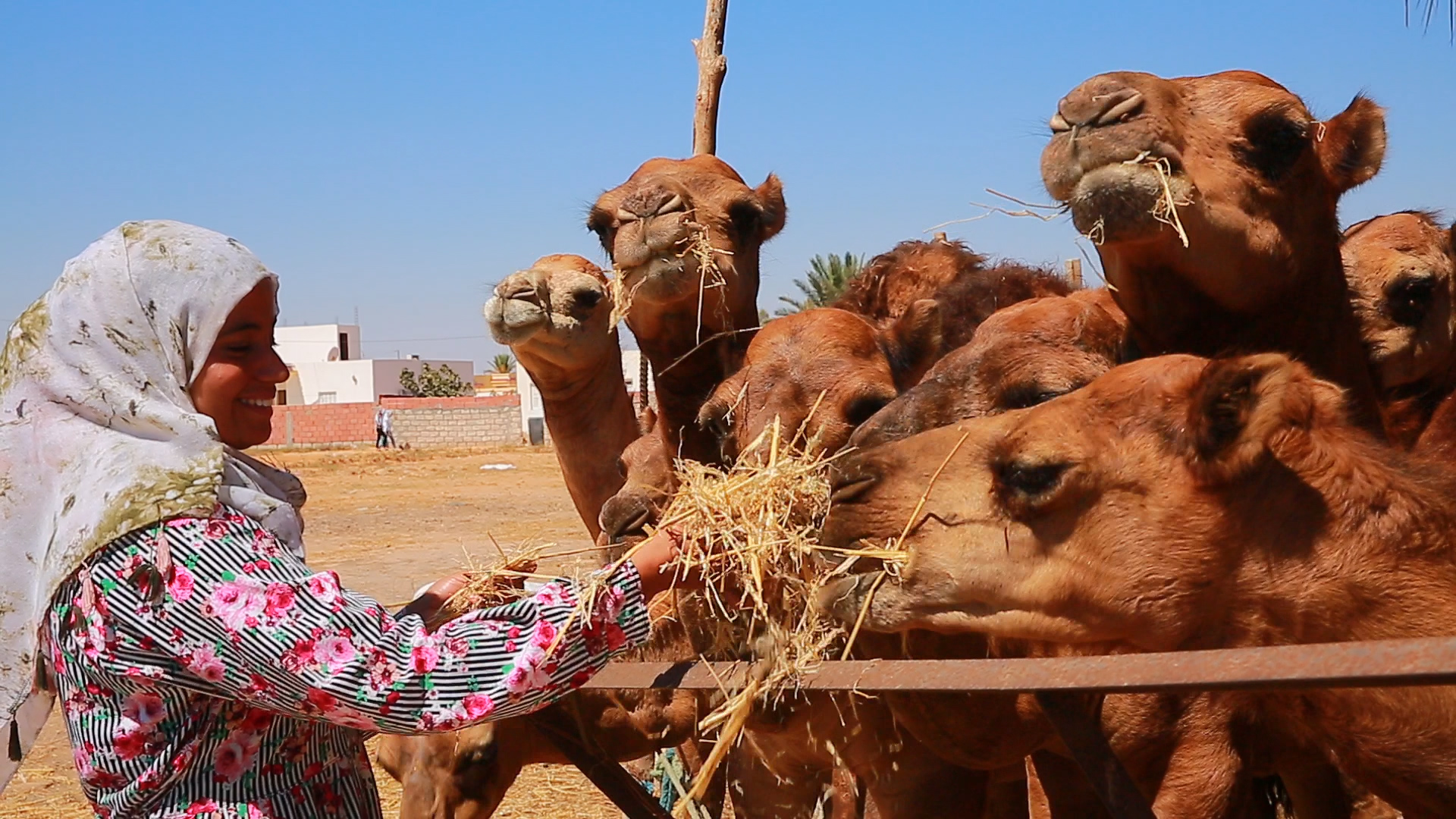
“I am ambitious by nature, I want to try new ideas,” says Imen Rezgui. “But when you lack financial means, you cannot get very far with these ideas.”
The PRODEFIL project in Tunisia provides women like Imen with streamlined access to loans and other financial products, helping them become economically active. It’s also bringing women and men together to change the conversation around traditional gender roles.
Today, Imen owns a successful camel-raising business, and many other women participating in the project have been able to start or expand small businesses of their own. Given that until recently, men and women did not interact at all in business transactions due to strict social barriers, these are impressive feats indeed.
West and Central Africa
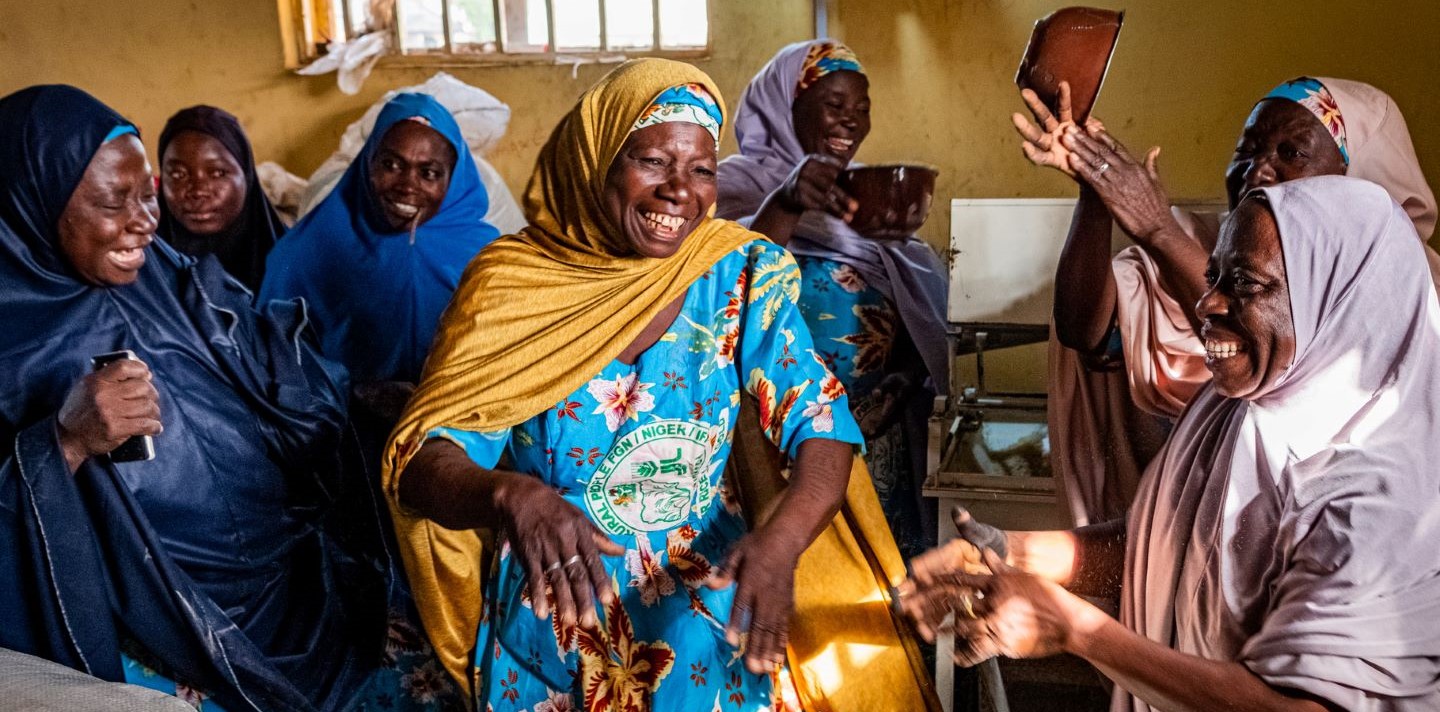
In Nigeria, the VCDP programme has enabled thousands of rural women to become successful entrepreneurs specializing in rice production and processing.
This was made possible through a combination of establishing and strengthening women’s groups, connecting them with private sector partners, and offering classes in financial literacy and business management.
But before the women could truly get started, they needed land – and to get land, they needed approval from the men in their communities. In partnership with community leaders and government representatives, the women’s groups used the GALS methodology to engage men, especially traditional and religious leaders, in dialogue. Ultimately, the men gave them their support.
“The [programme] has changed my life and my family has benefited immensely,” says Roseline Amadi, an entrepreneur from Ebonyi State. “I now practice agriculture as a business and have people working for me as employees. And my family now has access to a variety of fresh foods.”